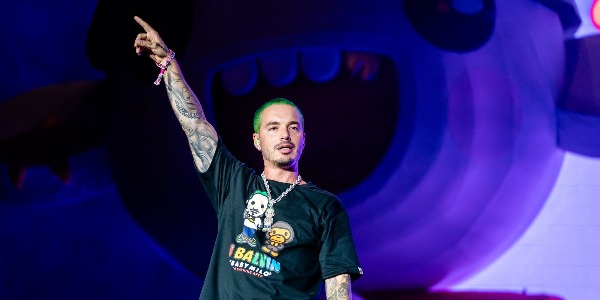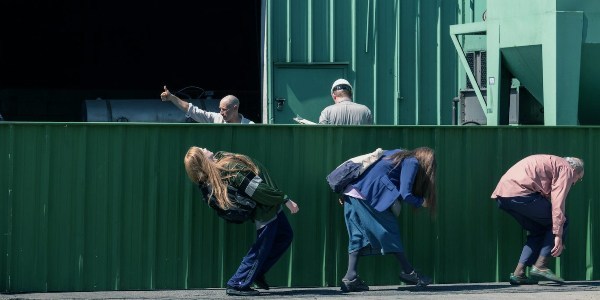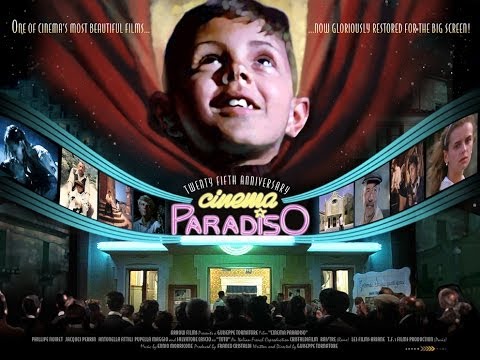Toronto International Film Festival 2020: THE BOY FROM MEDELLÍN: An Important Reflection on the Political Role of Public Figures
After reaching critical acclaim with works such as A Private War and Oscar-nominated Cartel Land, director Matthew Heineman takes somewhat of a left turn to document the homecoming of Colombia’s biggest reggae superstar, J Balvín. The Boy From Medellín follows the singer as he prepares to play the biggest concert of his life to a sold-out stadium in his hometown. As he spends sleepless nights fighting against the pre-concert jitters, Balvín reflects on his fifteen-year career and the mental health struggles that have closely followed him as he skyrocketed to international stardom.

As we are introduced to the phenomenon that is Balvin, Heineman closely follows the idol, painting a picture of a sort of modern Messiah. The singer brings crowds of thousands to his feet as he walks the poorest areas of Medellín – “José, José”, scream the people, yearning to touch the man, to establish any sort of connection. To some of his fellow Colombian performers, however, Balvin is the representation of the “pet Latino”, an artist who merely used his culture as a stepladder, a token to obtain money and fame abroad. When attacking the star, local musicians make sure to mention how comfortable it must be to see his country burning from the luxury of his house in Miami, how great to have built a life of extravagance while his people fight for the most basic of necessities. The accusations are heavily detrimental not only to his career but to Balvín’s state of mind.
“Depression is hell”
Throughout the whole of the documentary, Balvín is impressively candid regarding his mental health struggles, from his early years battling with depression to the moment when he seriously contemplated suicide. “It happens to me too”, he tells the raving crowd from the top of the stage. As a Latin man, Balvín faces an extra layer of stigma when it comes to voicing his battles, vulnerability oftentimes considered to be the sheer opposite to masculinity. Juxtaposed to the throbbing beats of reggaeton, Balvín’s decreasing disposition is turned into a dance of ecstasy and despondency as the singer attempts to balance gratitude and powerlessness.
As a rapidly growing political crisis burns across Colombia, Balvín is inundated by an outpour of online attacks demanding him to take a political stance. There is a sense of unspoken accountability for someone who heavily benefits from the title of “the boy from Medellín”. To many, Balvín can’t simply choose to employ his heritage when it is most convenient while blatantly closing his eyes to the troubles of his own.
The role of the public figure
Heineman builds an intimate yet informative feature that shines a light on the importance of public figures speaking out against the oppression suffered by the voiceless. Balvín eagerly defends his right to remain silent and focus on his music while thousands march the streets for the most basic of rights, “I don’t want to get into political things because it’s not my thing”.

The artist constantly mentions his own personal struggles and the years it took for him to build his personal empire as if this enables him to rest in neutrality. Blinded by a sense of earned righteousness, Balvín separates himself from what takes place a few miles away from the luxury of his mansion. To him, J Balvín, the singer, does not hold the civil responsibilities of José, the man. Slowly, however, the shield provided by this constructed dichotomy crumbles and a decision needs to be made before the man stands against the blinding lights.
“I speak for my people”
“And this time, as José Álvaro Osorio Balvín, I speak for my people. I speak in the name of youth”. With these words, the boy from Medellín asks for a minute of silence that is only broken by the raving cheers of hundreds of thousands of people. His people. It’s a poignant moment nearly unspoiled by the cynical truth that this has only been made possible after the singer has been green-lit by his high-level management team. Here, Heineman proves that beauty lies even in the most calculated of business decisions.
What are some of your favourite documentaries about music icons? Tell us in the comments!
The Boy From Medellín had its world premiere at the Toronto Film Festival 2020.
Watch The Boy From Medellín
Does content like this matter to you?
Become a Member and support film journalism. Unlock access to all of Film Inquiry`s great articles. Join a community of like-minded readers who are passionate about cinema – get access to our private members Network, give back to independent filmmakers, and more.
Join now!





